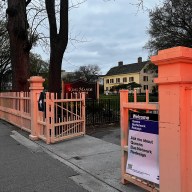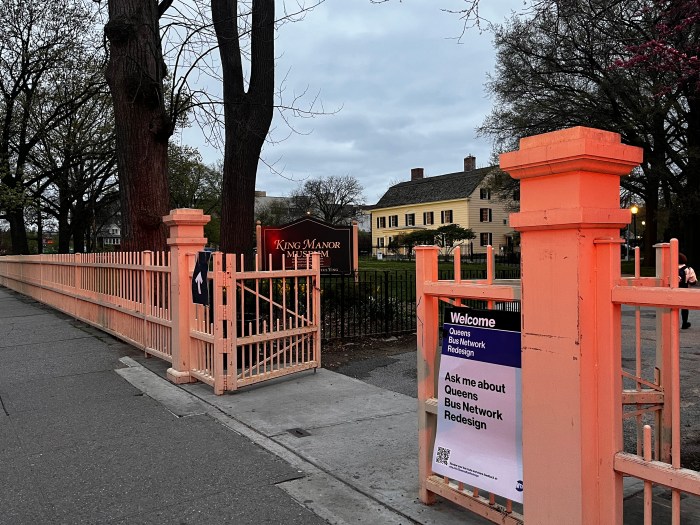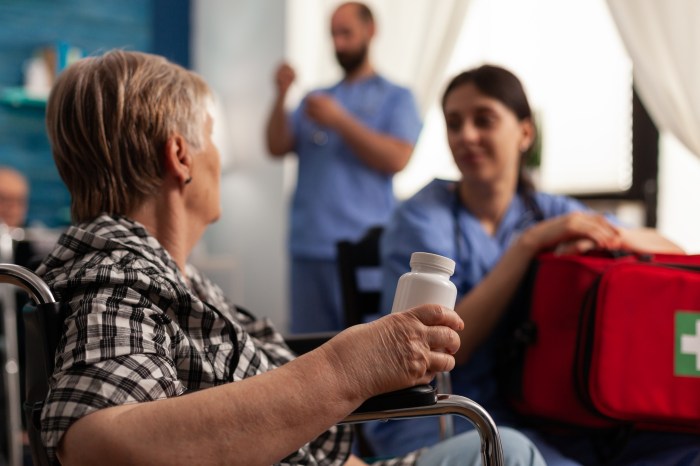By Tom Momberg
Benjamin Cardozo HS students got a special visit Wednesday to witness firsthand testimony from a survivor of the atomic bomb attack on Hiroshima in World War II and the grandson of President Harry S Truman, who ordered the world’s first nuclear assault.
The students were thrilled to participate as they were guided through the history of the Pacific Theater by Kathleen Sullivan, the director of Hibakusha Stories Program, a nonprofit which seeks to pass the legacy of the Hiroshima and Nagasaki bombings to students at universities and high schools.
“It can be very hard to listen to stories of survivors. It’s a very sad story,” Sullivan said. “But I can tell you they’re not telling their stories to elicit your sympathy. They risk their personal comfort so that you understand what nuclear weapons mean so that you learn and use your life energy to do something about it.”
Reiko Yamada was an 11-year-old schoolgirl in Hiroshima City during the attack on Hiroshima on Aug. 6, 1945 that killed 140,000. Now 81 years old, she stood before Cardozo students alongside the grandson Truman’s grandson, Clifton Truman Daniel, to share her story.
Yamada is a Hibakusha, which is Japanese for survivor of an atomic bomb. The reason the Hibakusha Stories Program paired the testimony with the speech of Truman’s grandson was to inspire peace.
“It’s been 70 years since I had to experience the atomic bomb,” Yamada said alongside her translator. “To be honest, I really don’t want to have to remember what I went through, what I felt and what I saw. I have times when I really don’t want to talk about it. And though I don’t want any of you to have to feel sorry either and feel what I felt, I don’t want anyone else to ever have to go through what I did. That’s the reason why we Hibakusha give our testimonies.”
Though Yamada was speaking in Japanese, her emotion transpired in the faces of Cordoza students, who were quite attentive.
Yamada explained that she was outside school on the day the atomic bomb was dropped on the Japanese city, just three days before she and her classmates were scheduled to evacuate to the countryside. They saw a U.S. B-29 bomber fly overhead and make a U-turn before a white flash blinded them all as they headed for air-raid shelters.
One of her sisters and her father were badly burned from being closer to Ground Zero, but they all survived, which she said was not necessarily a blessing.
Everyone at her school was evacuated for a month on the day Japan surrendered, but she did not understand what it meant for her country to lose the war. She did not even know her family was alive until the day she was taken home, where there was still only debris and corpses of friends and neighbors.
“On this day, even though I was very excited to reunite with my closest friends, I would no longer ever be able to go to their houses again,” Yamada said. “That was the first time I fell down to my knees and burst out in tears.”
Daniel never heard stories about the war from his grandfather, but had his first real exposure to the effect of the atomic bomb as an adult when he was with his mother at a United Service Organizations event, when two Pacific WW II Veterans tried to stop them.
“They said they just wanted to thank her, because if it weren’t for her father dropping that bomb, we wouldn’t still be here today. They believed that dropping that bomb was what stopped the war and saved them from the invasion of the Japanese Islands,” he recalled.
But with between 10,000 and 16,000 warheads on the planet today, Daniel recognized that it’s unlikely for such a horrific action to make peace again.
Daniel and Yamada, now friends for years, said they would love to see all nuclear weapons removed from the planet, and they work together to share their stories to instill that goal in the next generation.
The assembly event was put together by Assistant Principal of Social Studies Peter Georgatos and Cardozo Teacher Melissa Hogan, who reached out to Hibakusha to make it happen.































